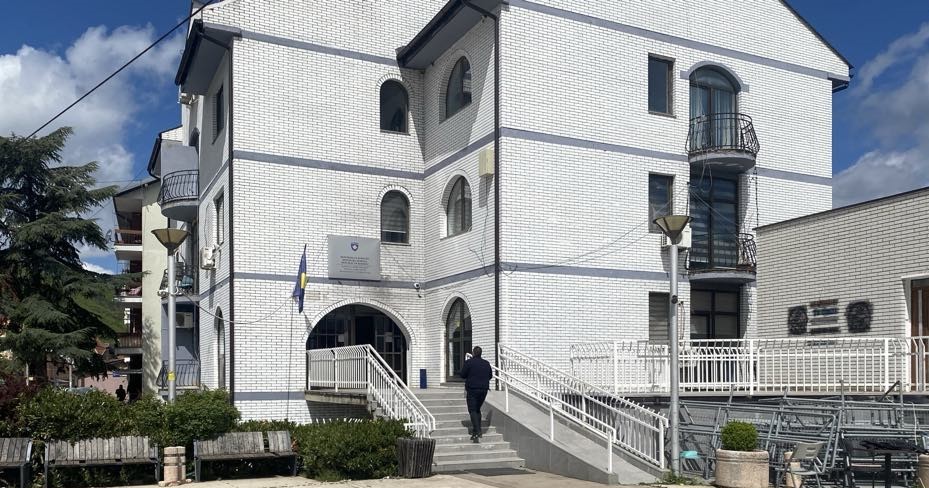The failure of the initiative to dismiss Albanian mayors after the process was boycotted by the Serbians in the north, signifies a continuation of the “status quo” in a region characterized by tensions over the past two years. A pro vote could have paved the way for Serbs to elect their legitimate representatives, a year after the appointment of Albanian mayors in these municipalities sparked a wave of violence in the north.
Out of 45 thousand eligible voters, only 253 voted. In fact, in one of the municipalities, Zvečan, there were no voters at all.
For the dismissal of mayors to be considered valid, the participation of over 50 percent of voters was required.
Led by the largest Serbian party, which is officially supported by the authorities in Belgrade, thousands of citizens from the four northern municipalities signed a petition in January of this year to arrange a ballot to dismiss the mayors in North Mitrovica, Zvečan, and Leposavić.
However, two weeks before the vote, the Serbian List returned to boycotting, citing decisions that deepened their dissatisfaction. This skepticism was accompanied by a narrative persistent in recent months that the government of Kosovo has been conducting an ethnic cleansing campaign in the north.
According to them, since the Kurti government came to power, about 15 percent of Serbs have left the north, a number that has not been confirmed by official institutions.
The accuracy and comparative analysis of the Serbs who have left the north in recent years could be conducted after the commencement of the ongoing population registration. The Serbian List has also called for a boycott of this process. According to the Serbian List, participating would only serve to confirm the "success" of the Kurti government in expelling Serbs from Kosovo.
The last census was held in 2011, conducted by the municipalities rather than by the Statistical Agency, as it is now. At that time, the process was boycotted by majority-Serb municipalities in the north, as well as the Gračanica and Štrpce municipalities in the south, which are also predominantly Serb.
Another reason cited by the Serbian List was the implementation of the Central Bank of Kosovo's regulation that prohibits the dinar as a currency for cash transactions. Although Kosovo's right to enforce legality in financial transactions is recognized, the concern relates to the impact of the regulation, especially on schools and hospitals, where an alternative solution does not seem feasible at the moment.
Efforts by Brussels to resolve this issue before the vote for the removal of the mayors proved unsuccessful, despite five meetings having been held between Kosovo and Serbia so far.
The failure of the boycott allowed two mayors from the ranks of the Democratic Party of Kosovo (PDK), who had been operating from alternative offices, to return to the municipal buildings. Their return, along with that of the municipal councilors, occurred quietly, unlike last year when their attempt to enter the municipalities of Zvečan and Zubin Potok was met with violent protests that affected members of the Kosovo Police, KFOR, and journalists.
The new elections in the north were part of an agreement between the government of Kosovo and the European Union to de-escalate the situation, which had escalated into violence. However, the path chosen through the petition was not seen as appropriate by international observers who were calling for the resignation of the Albanian mayors.
Although the government believes it addressed the concerns of the international community, the European Union views the unsuccessful outcome of this process as unhelpful in reducing tensions. Both the EU and the USA expressed regret that the Serbs in the north missed the opportunity to exercise their right to elect municipal mayors who would genuinely represent them. Although the situation in the north remains calm, the potential for the outbreak of tensions is high, a fact not denied by government officials. Deputy Prime Minister Besnik Bislimi, in an interview with a Ukrainian media outlet, stated that "we must be prepared for the worst."
The annual report of the U.S. Office of the Director of National Intelligence (ODNI) mentions the risk of increased interethnic violence in the Western Balkans.
According to the report, nationalist leaders "are likely to exacerbate tensions for their own political gains" while external actors threaten to "intensify and exploit ethnic differences" to maintain their influence in the region and hinder the integration of Western Balkan countries into Euro-Atlantic structures.
The report also references, as it describes, "clashes between Serbian nationalists and Kosovo police last year that resulted in deaths and injuries, including injuries to NATO peacekeepers."
After the terrorist attack in Banjska, KFOR increased its troops and heightened patrols around the border with Serbia to prevent further attacks. NATO continues to be the most trusted international presence in the country, uncontested by both Serbs and Albanians. Given this, any infringement on Kosovo's sovereignty and territory would increase mistrust towards this Force.
Following the failure of the initiative to remove the Albanian mayors, the first step requested by the Kosovo government from the EU was to lift the sanctioning measures that had been imposed in response to last year's tensions.
However, EU officials stated that the European Council would discuss this matter after receiving a report from the High Representative on the fulfillment of the demands. Despite the government's insistence, the EU’s decision-making process was set in motion, as the measures are still seen as a means of exerting pressure on the government to fulfill its duties in de-escalating the situation.
*This article is published as part of the Western Balkans Regional Initiative against disinformation. “Western Balkans Anti-Disinformation Hub: exposing malign influences through watchdog journalism.”





























































